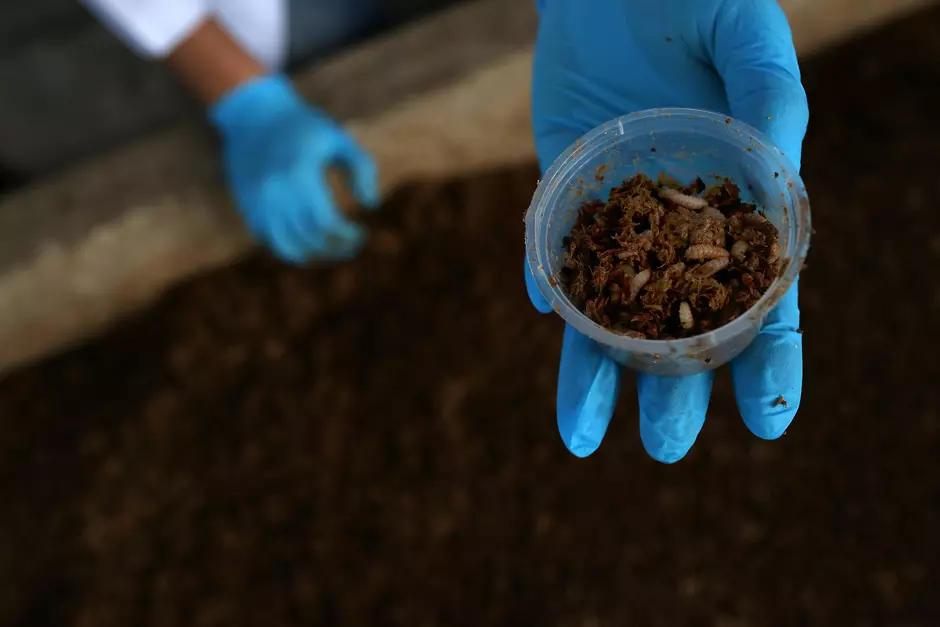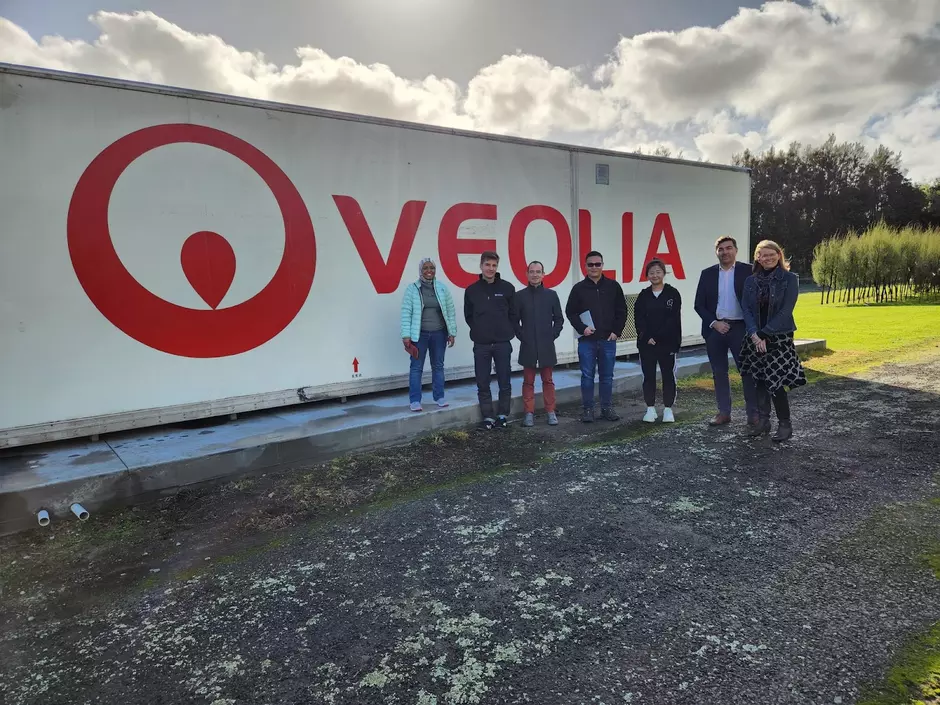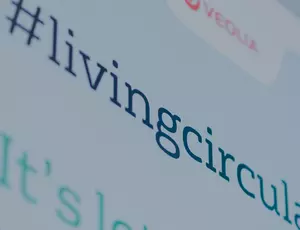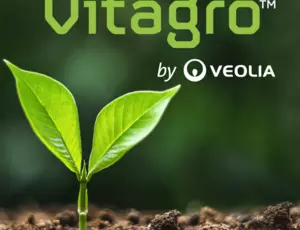Veolia is bringing its knowledge and experience in bioconversion to New Zealand to meet the country’s greatest challenges on waste recovery and sustainable agriculture. Our goal is to provide a sustainable and organic solution to turn organic by-products into animal proteins via bioconversion. This insect-based process is already working at industrial scale in Europe and Asia, in two Veolia facilities, where Veolia collaborates with the food industry and agriculture sector to ensure a local circular economy.
What is bioconversion?

Black soldier flies (Hermetia illucens) are used to transform organic waste from the agricultural and food industries into animal feed and fertiliser. This harmless and non-invasive insect is a natural nutrient recycler, feeding on a wide variety of organic matter in its larval stages. Once the larvae have been fed, the end product is a source of protein that can be used in pet food, livestock feed (especially for poultry and pork) and in aquaculture as a replacement for fish meal. In addition to the protein meal and oil products, frass, a bioconversion co-product, is an excellent organic fertiliser, restoring soil organic matter and replacing chemical fertilisers.
Discover our bioconversion journey in Aotearoa (New Zealand)

Veolia is excited to share the progress of our bioconversion project in Palmerston North, on Aotearoa New Zealand's North Island. This project, co-funded by New Zealand's Ministry for Primary Industries (MPI) through the Sustainable Food and Fibre Futures fund (SFF Futures), is a collaboration between Veolia, Plant & Food Research Institute, and Massey University. Under the guidance of our expert team based in Asia, we have established a containerised lab that enables us to conduct insect trials using various sources of organic by-products. This initiative has led to the development and operation of New Zealand's first small-scale pilot facility for insect bioconversion. Massey University plays a crucial role in certifying our insect products, ensuring we provide quality end-products to New Zealand manufacturing companies. This project is actively contributing to a sustainable future, rethinking agriculture and waste management at a local level.
Contributing to a more sustainable food supply
Our project is well underway, building a future of circular economy and emissions reductions. We are grateful for the ongoing support from industries across various business sectors. New Zealand has positioned itself as a pioneer in bioconversion, showcasing innovation and new solutions for the environment. As global leaders in Ecological Transformation, we are proud of our partnership with New Zealand stakeholders and are excited about our continued contribution to the development of a new sustainable food circular economy for the country.
Frequently asked questions
What is bioconversion?
Bioconversion, also known as biotransformation, involves converting previously undervalued organic products (catering leftovers, harvest waste, food processing by-products, etc.) into high added-value products, locally produced for an optimised value chain and significant reduction of greenhouse gas emissions. By upcycling organic by-products into new feed and food for various industries, Bioconversion helps redefine what ‘circular economy’ means.
What are the benefits of using insect-based feed for animals?
Insect-based feed for animals based on waste bioconversion is a truly circular solution. It brings a highly traceable new solution to food waste recovery and protein supply challenges globally. Black Soldier Fly Larvae allow for high transformation efficiency, reducing the footprint on land and the need for water; as well as nutritional content suitable for many markets, such as pet food, aquaculture and livestock feed.
What are the nutritional advantages of insect protein in animal feed?
Black soldier fly meal has many nutritional advantages due to its high protein content, the absence of external contaminants and high digestibility, as well as palatability for aquatic species, animal feed and pet food.
How does insect-based feed compare to traditional animal feed?
Besides its nutritional advantages, insect-based feed is sustainable and has a high protein conversion efficiency: 10 kg of plant protein produces 1 kg of beef protein, but 10 kg of insect protein. Insect-based feed is made up from highly valuable organic by-products and has a very low footprint compared to traditional animal feed and aquaculture feed, as livestock farming is one of the main reasons for deforestation around the world. On the other hand, insect meal also reduces overfishing for aquaculture. The production of insect meal requires much less water than meat meal production, and the CO2 emissions are extremely low compared to beef or chicken.
Make an inquiry with our team
- Further reading -
Veolia acknowledges the co-funding of this project through the Ministry for Primary Industries’ Sustainable Food and Fibre Futures fund.





